‘Tax these beasts off the roads’: Fury erupts over big car popularity
Fierce debate is raging over calls for Aussies to ditch their addiction to oversized and fuel-rich cars, dubbed “beasts” and “Yank tanks” by critics.
Furious debate is raging over an opinion piece calling for Australians to ditch their worsening addiction to big and fuel-rich, which some readers dubbed “Yank Tanks” and “beasts”.
On Monday, Sydney Morning Herald business reporter Millie Muroi penned an opinion piece titled, “The costly car choice we need to rethink”, taking aim at sports utility vehicles, or SUVs.
Australians can’t get enough of them, with the take-up of larger cars surging in recent years. More than 55 per cent of all new car sales last year were SUVs, up from a quarter in 2018.
All of the top 10 best-selling cars last year were SUVs or light commercial vehicles, despite fuel prices leaping in the past few years and rising more than 60 cents per litre in the second half of 2023 alone.
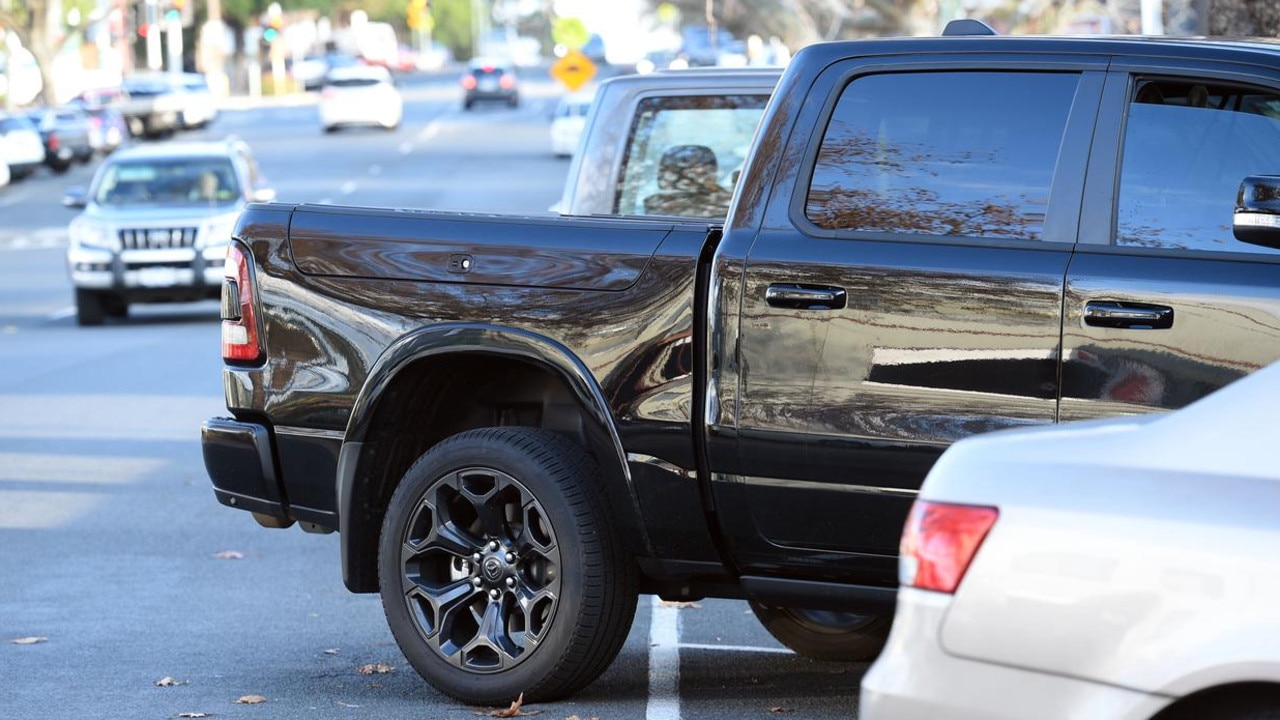
“So, why are more people opting for fuel-thirsty giants like SUVs and utes?” Muroi asked.
She attributes the swift uptake of bigger cars, despite the fact they usually cost more to buy and then to run, to cashed-up Baby Boomers.
Another major driver of their popularity is a growing desire for vehicles that are seen as being safer.
“All other things equal, a bigger car will cause more damage and hold up better against a smaller car,” she noted. “As more people hit the road with their heavyweight SUVs and utes, there’s more chance of coming out worse off in a crash if you’re not driving one yourself.”
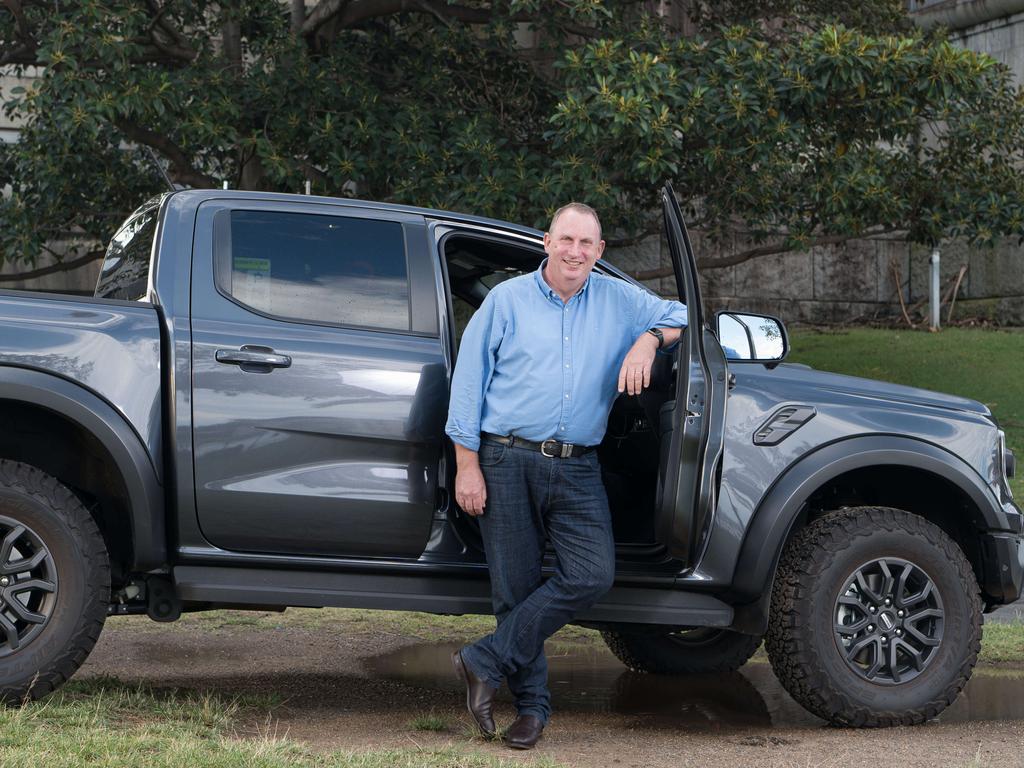
But Muroi noted “numerous costs, both personal and societal” that come from more and more big cars taking over Australia’s roads.
“Not only does it cost Australians more to feed fuel-thirsty cars such as SUVs and utes, but it comes at a notable cost to the environment, drivers of smaller cars and pedestrians.
“Both pedestrians and those driving smaller cars are more likely to suffer serious and fatal injuries when they’re involved in a collision with a heavier vehicle.
“And the race to get our emissions down is suffering as more Australians choose giant cars.”
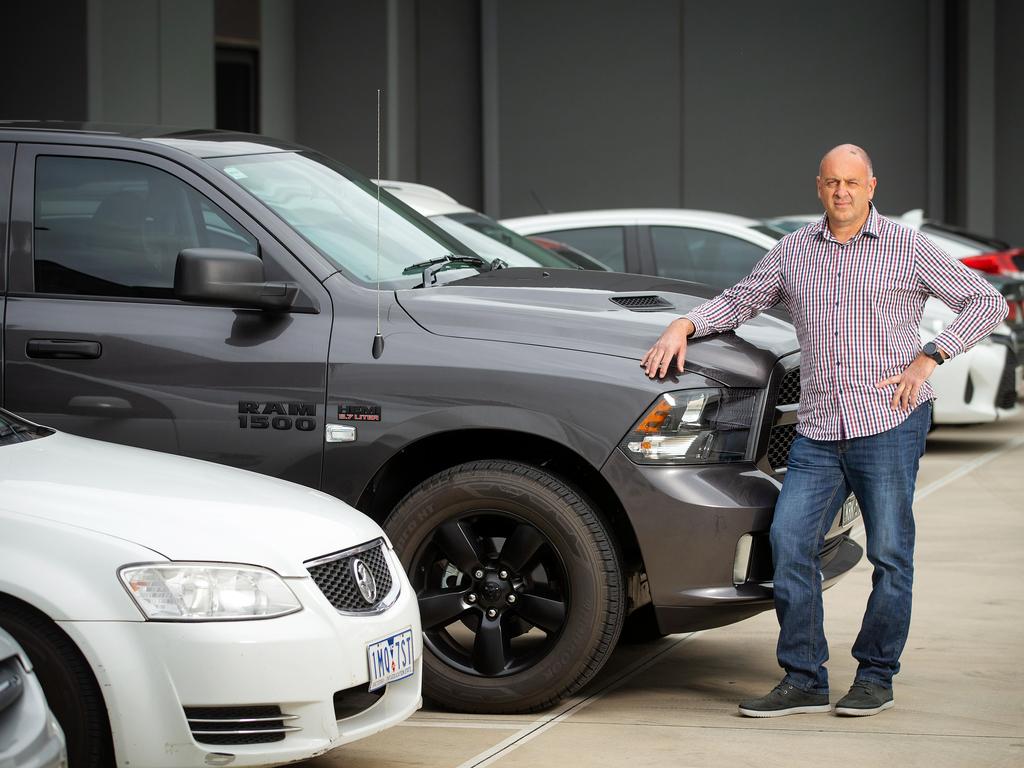
While preferences take time to change, Muroi said it’s time “we don’t have” when it comes to climate change.
“From backyards to beer consumption, Australians love going big, but it’s time to take our feet off the accelerator when it comes to big cars and foot the bill,” she said.
Furious debate rages
Yesterday, journalist Neil McMahon shared Muroi’s op-ed on X, formerly Twitter, with a call to “tax these beasts off the road”.
It sparked a spirited debate from both sides of the SUV divide.
One user named Enzo Mazzaferro remarked: “Limiting choice is the beginning of Communism.”
“It is not your right to tell people what they can and can not do or control people,” another named Cameron Knorre said.
And this barb came from user Penelope Piper: “Why? People are free to live their lives how they choose. Stop being a Karen.”
“So I frequently drive up the WA coast and go offroad, camping, family of 4 … am i not allowed to do this? These cars are the only ones that allow this [sic],” Arthur King asked.
Meanwhile, a user named Mick called for a restructure of car registration costs, proposing it be based on annual distance travelled and the size of the vehicle.
“A Mazda 2 that does 5,000km per annum should not be slugged the same rego as a huge Yank tank that does 40,000km per annum,” he wrote.
— Lindsay (@linzoconnor) January 8, 2024
Another going by Michael said: “These things are supposed to be working vehicles not mall crawlers.”
“Maybe if there was more psychological support for men with micro penises, there would be less need to overcompensate,” a user named Chris cheerily suggested.
And another named Melly noted: “They’re a hazard on the roads for other average sizes vehicles. The amount of times I couldn’t see because I had one of these next to me while I was turning into a street – I always end up going on a hope and a prayer!”
A car park bugbear
A consequence of the love affair with big cars is that some are longer or wider than the standard sized car park space in Australia.
Social media platforms are regularly flooded with images and video of huge vehicles taking up multiple spots in shopping centres.
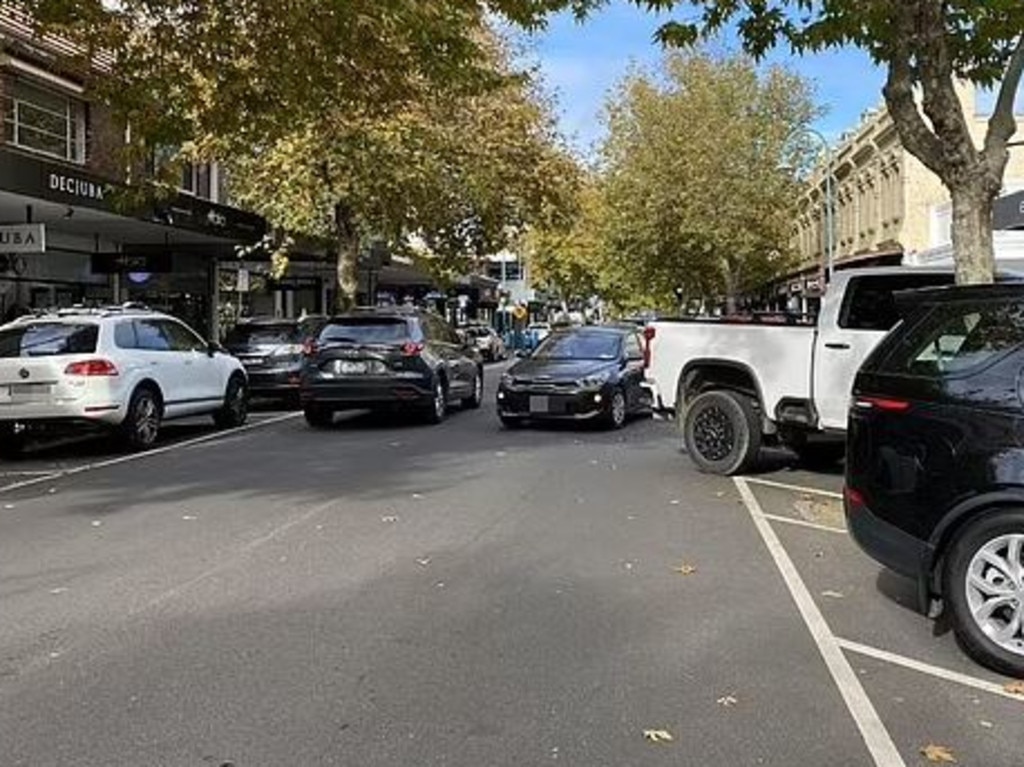
One such example is an image of a six metre-long Chevrolet Silverado ute sticking out into traffic in a busy inner-suburb of Melbourne in May, which went viral.
For decades, the minimum standard size of car spaces on roads and in parking lots has been 5.4 metres long and 2.4 metres wide.
The most popular American-style big car, the RAM 1500, would overhang that car space by 43 centimetres.
The regulator Standards Australia is considering increasing the length of parking spaces by 20cm in order to fit increasingly big vehicles.
Climate ambitions set back
The environmental impact of large petrol-guzzling cars has long been a cause for concern.
In a survey of Australia’s top economists, conducted by the Economic Society in October, 22 per cent backed the eventual phasing out of non-electric vehicles in a bid to help the country reach its emissions reduction targets.
The Federal Government has legislated a goal of a 43 per cent cut to emissions levels seen in 2005 and a net-zero status by 2050.
However, Climate Change and Energy Minister Chris Bowen recently described efforts to get there as “difficult” and bureaucrats declared only “addition measures” will make the ambition a reality.
The government seems unwilling to entertain bold policies when it comes to high-emitting vehicles – namely new tariffs and stringent vehicle efficiency standard.
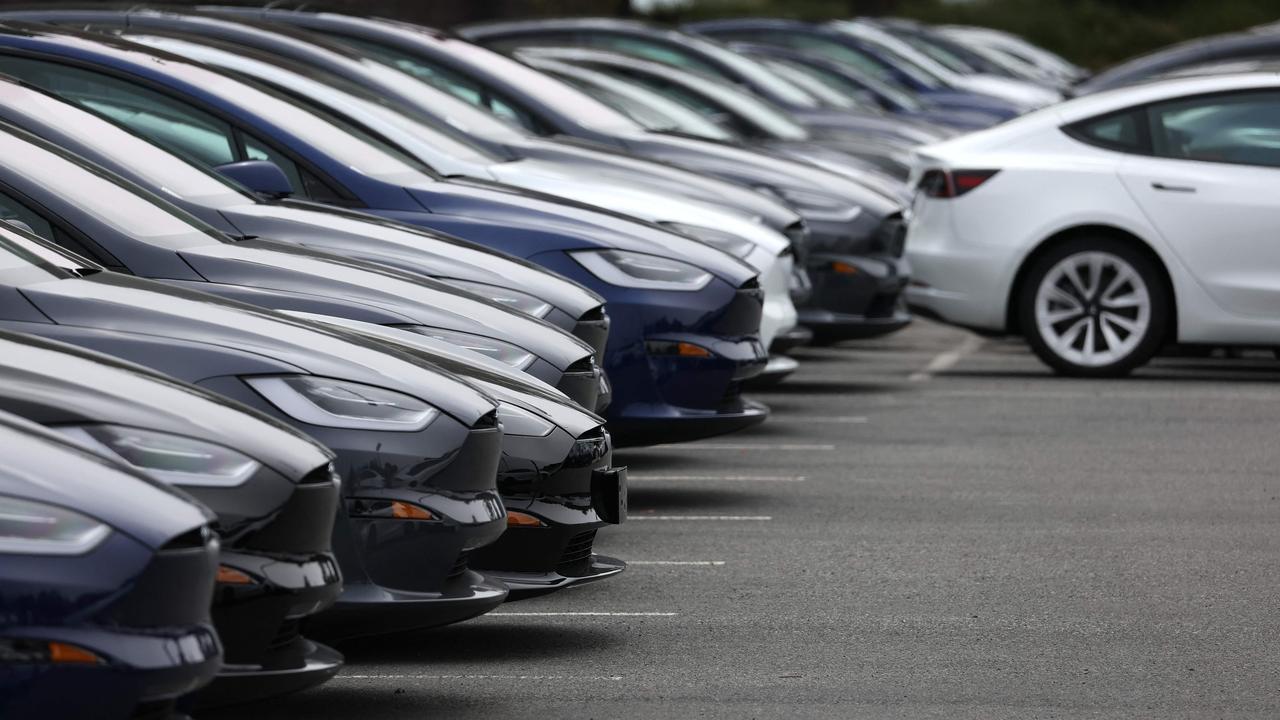
Advocates say policymakers need to do more to encourage the take up of electric-powered cars and to dent the popularity of petrol-rich vehicles, given transport accounts for 18 per cent of Australia’s total emissions.
While electric cars are surging in popularity, they remain a minority on the world’s roads, with an estimated 26 million privately owned EVs globally as of 2022.
However, market share is rapidly on the rise, particularly across Europe.
For one, they’re much cheaper to run, with analysis Muhammad Rizwan Azhar from Edith Cowan University putting the annual cost of fuel and maintenance for a regular petrol car travelling about 12,000 kilometres at $2730, compared to just $720 for an EV in the same conditions.
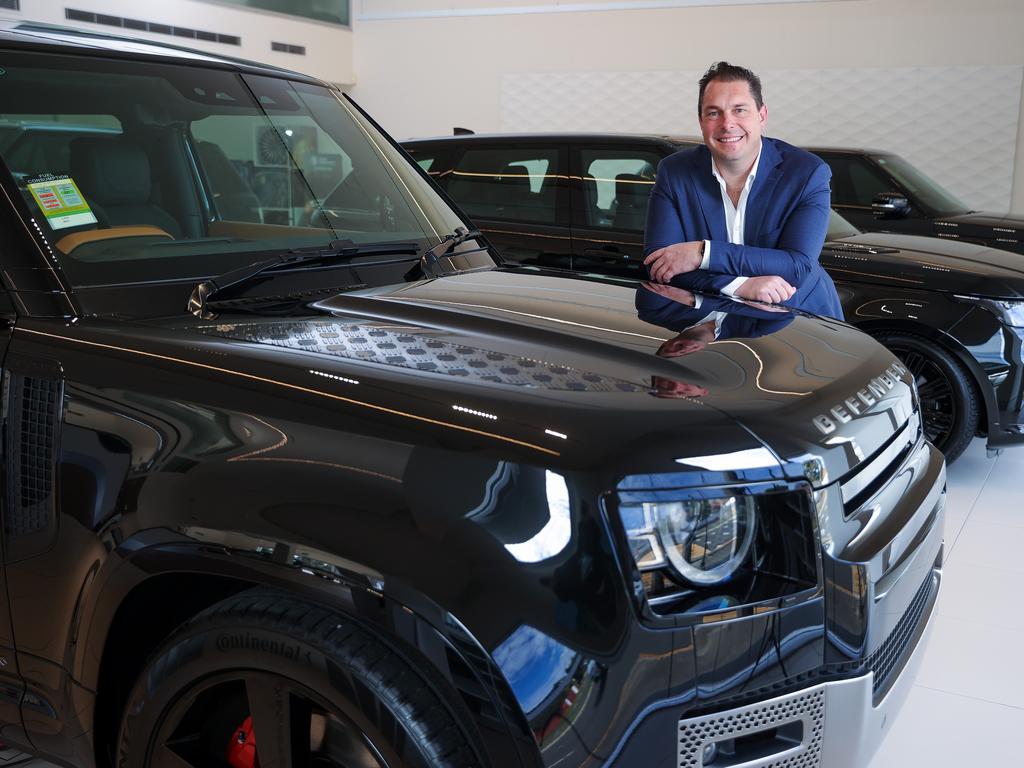
A report by the Australia Institute last year found drivers are collectively spending an extra $13 billion at the petrol pump thanks to the popularity of what it called “big, dumb cars”.
It blames outdated tax policies that reward buyers of petrol-guzzlers for the mammoth uptake of big cars.
“Our tax system is the reason that our car fleet looks nothing like the car fleet of most major countries,” Richard Denniss from the Australia Institute told the ABC yesterday.
Despite the benefits, EVs are expensive to buy, putting them out of reach for many motorists, and the rollout of public charging infrastructure puts off some potential purchasers.



